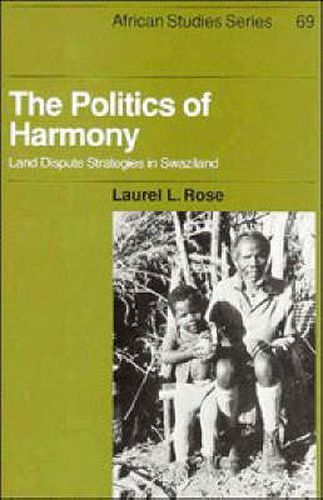Readings Newsletter
Become a Readings Member to make your shopping experience even easier.
Sign in or sign up for free!
You’re not far away from qualifying for FREE standard shipping within Australia
You’ve qualified for FREE standard shipping within Australia
The cart is loading…






Laurel Rose analyzes how traditional ruling elites in Swaziland, as in other parts of Africa, use harmony ideologies to downplay and resolve land disputes. Such disputes could be used by foreign development agents or indigenous new elites as justification for implementing land tenure changes, including a reduction of traditional elites’ power based upon land control. Swazi commoners accept the cultural value and legitimacy of most harmony ideologies, but they adopt various strategies when disputing about particular land rights in order to produce more favorable outcomes. This book is unusual in its focus on political rather than economic dimensions of land tenure and disputes. It searches for links between individual concerns with land use rights and national concerns with land policy. It also examines gender and leadership issues associated with land, showing how women and new elites threaten land interests of men and traditional leaders.
$9.00 standard shipping within Australia
FREE standard shipping within Australia for orders over $100.00
Express & International shipping calculated at checkout
Laurel Rose analyzes how traditional ruling elites in Swaziland, as in other parts of Africa, use harmony ideologies to downplay and resolve land disputes. Such disputes could be used by foreign development agents or indigenous new elites as justification for implementing land tenure changes, including a reduction of traditional elites’ power based upon land control. Swazi commoners accept the cultural value and legitimacy of most harmony ideologies, but they adopt various strategies when disputing about particular land rights in order to produce more favorable outcomes. This book is unusual in its focus on political rather than economic dimensions of land tenure and disputes. It searches for links between individual concerns with land use rights and national concerns with land policy. It also examines gender and leadership issues associated with land, showing how women and new elites threaten land interests of men and traditional leaders.